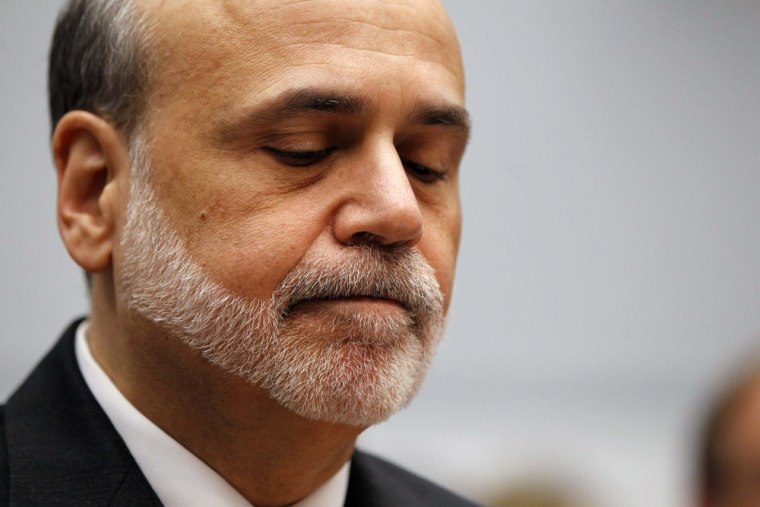In early 2006, the Bush/Cheney administration needed to choose a new chairman of the Federal Reserve to succeed Alan Greenspan. Naturally, the Republican White House turned to a like-minded figure and nominated Ben Bernanke, the former head of George W. Bush's Council of Economic Advisors.
Nearly a decade later, Bernanke's tenure at the Fed is over -- and so is his association with the Republican Party.
In one of the more revealing passages of his just-published book The Courage to Act, the former chairman of the US Federal Reserve lays out his experience with Republican lawmakers during the twin financial and economic crises that dominated his term as the head of the world’s most important central bank. Continual run-ins with hard-right Republicans -- such as noted Fed critic Ron Paul, the former Texas congressman -- gradually pushed him away from the party that first put him in charge of the Fed in 2006.
The piece published by Quartz quotes excerpts from Bernanke's book, in which the author explained his disappointment with the GOP. "I tried to listen carefully and accept thoughtful criticisms," Bernanke wrote. "But it seemed to me that the crisis had helped to radicalize large parts of the Republican Party."
Though Bernanke isn't ready to side with Democrats, he no longer associates with his former party. He “lost patience with Republicans’ susceptibility to the know-nothing-ism of the far right. I didn’t leave the Republican Party. I felt that the party left me.”
The break doesn't come as too big of a surprise. During his tenure, Bernanke at times abandoned subtlety and pleaded with congressional Republicans -- whose policies Bernanke saw as making the economy worse -- to be more responsible. GOP lawmakers consistently refused.
Indeed, by 2013, when Republicans were trying to blame President Obama for the sluggish recovery, Bernanke said quite clearly that the biggest obstacle to stronger growth was the Republicans' economic agenda.
GOP officials, all the while, tried to push Bernanke to stop trying to improve the economy through monetary policy.
Is it any wonder he no longer wants anything to do with the Republican Party?
